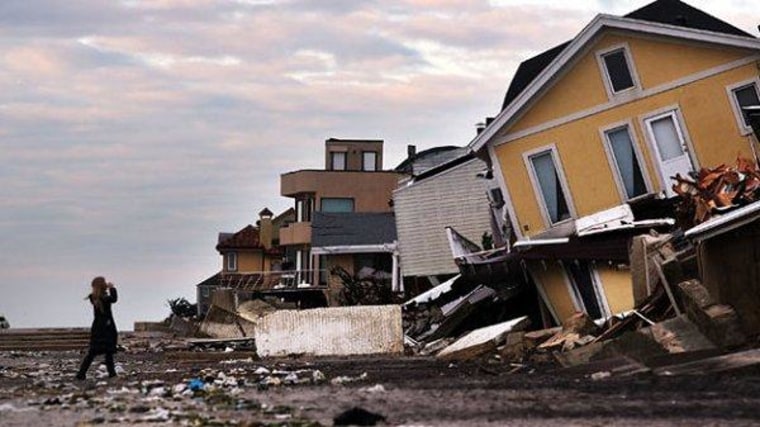House Speaker John Boehner (R-Ohio) faced an unexpected firestorm this week when he allowed the 112th Congress to expire without considering federal aid to victims of Hurricane Sandy. The Senate had already approved a $60.4 billion bill, including grants for homeowners and businesses, and investments in regional infrastructure, but Boehner chose not to act.
Under intense bipartisan pressure, the Speaker promised policymakers from affected areas that Sandy aid would be at the top of the to-do list in the new Congress. And sure enough, the House, on its first full day, approved some relief funding.
Under intense pressure from New York and New Jersey officials, the House on Friday adopted legislation that would provide $9.7 billion to cover insurance claims filed by individuals whose homes were damaged or destroyed by Hurricane Sandy.The measure is the first, and least controversial, portion of a much larger aid package sought by the affected states to help homeowners and local governments recover costs associated with the storm. The House has pledged to take up the balance of the aid package on Jan. 15.
Because measures cannot be carried over from Congress to Congress, the Senate still needs to approve this new House aid, but the upper chamber is expected to clear the funding later today.
It's worth noting that the House vote was one-sided, but it wasn't unanimous. The final tally was 354 to 67, and all 67 opponents were Republicans, which followed lobbying efforts from the far-right Club for Growth, which opposed the relief. Among the "nay" votes: failed vice presidential candidate Paul Ryan (R-Wis.).
Today's vote authorized the National Flood Insurance Program to borrow $9.7 billion to fill claims. The provisions Republicans are likely to find more controversial -- $51 billion in aid -- will come to the House floor in two weeks.
